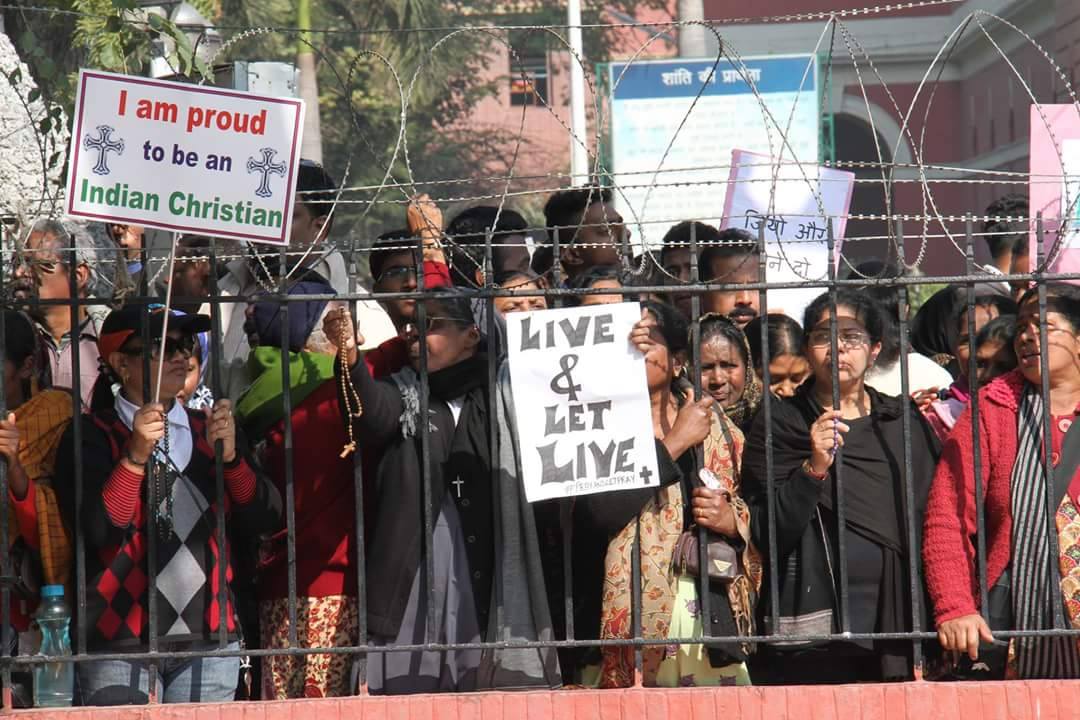
In 2024, violence against Christians in India saw a sharp increase, with over 840 incidents reported throughout the year, according to data from the Evangelical Fellowship of India (EFI). Of these, 640 cases were verified by the organization’s Religious Liberty Commission (EFIRLC).
The data from EFI’s Religious Liberty Commission (EFIRLC) paints a troubling picture of religious intolerance across the country. The highest number of incidents were recorded in states like Uttar Pradesh, which had 188 cases, followed by Chhattisgarh with 150, Rajasthan (40), Punjab (38), Madhya Pradesh (37), Haryana (34), and several other regions. These incidents involve a variety of attacks, including physical assaults, vandalism of churches, disruption of prayer meetings, and social exclusion. The most common targets of these attacks are pastors, churches, and Christians attending prayer services, with incidents frequently escalating during religious gatherings, especially on Sundays.
Reports indicate that on average, four to five churches or pastors face attacks every day, with significant spikes in violence during key months like January (71 incidents), September (68), March (64), and October (62). The timing of these attacks often coincides with sensitive political periods, such as during the general elections in April and May, when 45 cases were reported each month.
Uttar Pradesh has emerged as a hotspot for violence against Christians. The Prohibition of Unlawful Conversion of Religion Act, 2021, which was designed to prevent “forced conversions”, has been widely misused to target Christians, according to the organisation.
“Pastors and believers were frequently arrested under false allegations of forced conversions. Many of these individuals were simply conducting prayer meetings, attending family gatherings, or offering spiritual guidance,” the organisation said.
“Religious extremist groups frequently raid prayer services and disrupt worship while accusing Christians of coercion. In several instances, law enforcement action has led to the arrest of victims rather than those responsible for the violence. Legal experts note that lower courts regularly deny bail, prolonging unjust imprisonment for many believers.”
One particular case took place in Khaga, Fatehpur district, on December 27, when Pastor Shivbharan was attacked, forcibly shaved, and paraded through his village. Despite the brutality of the assault, Pastor Shivbharan was charged under the state’s anti-conversion law.
This story was originally published in theobserverpost.com. Read the full story here.

